WOBO appreciates the news items and updates from “edie”.
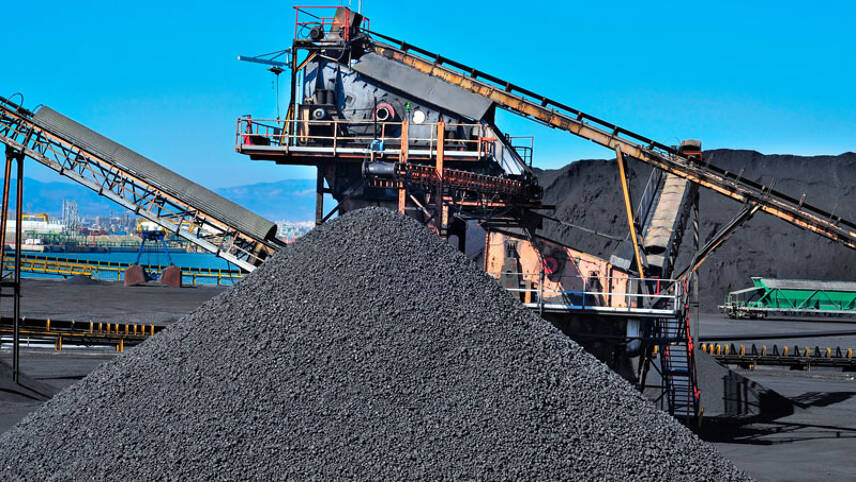
Coal consumption reached an all-time high in 2022, IEA confirms
Global coal consumption reached a record high last year and is likely to plateau in 2023. Declines in consumption in Europe have more than been offset by growth in Asia.
These are the headline takeaways of the International Energy Agency’s (IEA) latest annual coal market update.
According to the update, coal consumption rose by 3.8% year-on-year in 2022. This was primarily driven by the use of coal in heavy industry in China, India and Southeast Asia. This region is likely to account for 75% of the world’s coal consumption in 2023 by IEA forecasts.
The IEA confirmed that a spike in coal use in Europe at the start of the Russia-Ukraine conflict was temporary. Nations had scrambled to replace Russian fossil fuels with coal from elsewhere but have now improved energy efficiency and firmed up plans to procure alternatives to coal. Coal demand in the EU was down 24% year-on-year in 2022.
Demand was also down year-on-year in the US, by 16%.
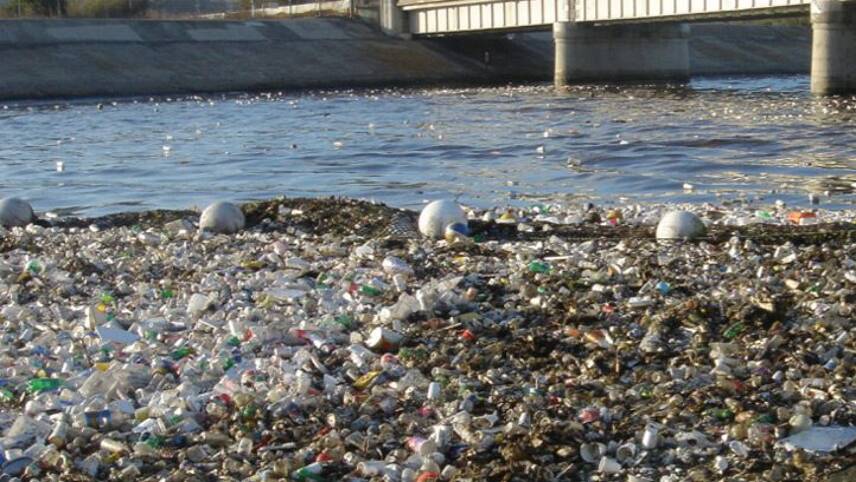
Plastic Overshoot Day: 43% of plastics manufactured this year will end up as pollution
Plastic Overshoot Day. This is the point in the year when the amount of plastics produced has officially exceeded the global waste management capacity.
The date, marked for the first time this year, has been calculated by Swiss research consultancy Earth Action (EA).
EA has calculated that the global production of plastics designed to only be used for a short time is set to reach 159 million tonnes this year. This is 68.5 million tonnes more of these plastics than waste management systems can process safely within a year.
These plastics are more likely than not to be mismanaged. With no capacity to recycle them or safely process them for a landfill or incinerator, they will likely end up in storage or polluting the environment.
This is not a new challenge for 2023. EA estimates that globally, plastic production capacity has increased 20 times more rapidly than recycling capacity over the past 10 years.
When it comes to plastic consumption on a per-person basis, the world’s worst offender is Iceland. The nation’s sparse population and reliance on imported goods are reasons as to why. Rounding out the top ten are Mongolia, the UAE, Singapore, Luxembourg, Kuwait, the USA, Saudi Ariabia, Italy and Canada.

Report: UK only has slim chances of meeting 2030 nature conservation promise
That is according to members of the House of Lords’ Environment and Climate Change Committee, who have this week published a new analysis revealing that only 6.5% of the land in England is currently protected in ways that can count towards the 30% target, which has a 2030 deadline.
This target forms part of the UN’s international treaty aimed at halting and reversing biodiversity loss. The UK and more than 190 other countries are signed up to the Convention on Biological Diversity, ratified late last year.
Off of land, Lords heard evidence that it is currently challenging to baseline the proportion of marine habitat allocated for conservation in ways that count towards the 2030 goal. Without this information – and without better monitoring of the condition of protected areas – it will be impossible to meaningfully track progress.
The Lords concluded that the Government is treating the 2030 target as a long-term, non-urgent priority, despite having less than seven years to achieve it.
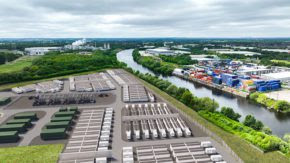
Plans approved for world’s largest battery storage scheme in Manchester
Carlton Power has secured planning permissions for the 1GW battery energy storage scheme (BESS) from Trafford Council.
The 1040MW project, with a production output of 2080MWh, will be located at the Trafford Low Carbon Energy Park in Greater Manchester. The £750m project will strengthen energy security in the region and dwarfs the current largest BESS in the world – the 400MW Moss Landing Energy Storage Facility in California.
Carlton Power’s founder Keith Clarke said: “Carlton Power acquired the former coal-fired power station in 2008 to redevelop the site for new energy projects. With the approval of the BESS, this brings the total investment value of the site to £2bn, which will deliver significant economic benefits to the Greater Manchester region and help to deliver the regional net-zero targets.
“The investment in the Trafford Low Carbon Energy Park over the next 2-5 years demonstrates Carlton’s long-term vision and commitment to re-energising the Trafford site.”
The 1GW BESS will be Carlton Power’s second major project for the Low Carbon Energy Park. The company is also working on a 200MW green hydrogen facility, which is also expected to come online in 2025.
The company unveiled plans for the green hydrogen scheme in 2021, outlining how the production facility could be created on land owned by the business at its existing power station site. The facility would include an electrolyser powered by renewable electricity, gas compressors, hydrogen storage facilities and tanker loading facilities.
The Energy Park will also be home to the world’s first commercial liquid air storage system. Highview Power Storage is developing the £250m, 250MWh long duration, cryogenic energy storage system at the Park, which is located on the site of the former Carrington coal-fired power station.
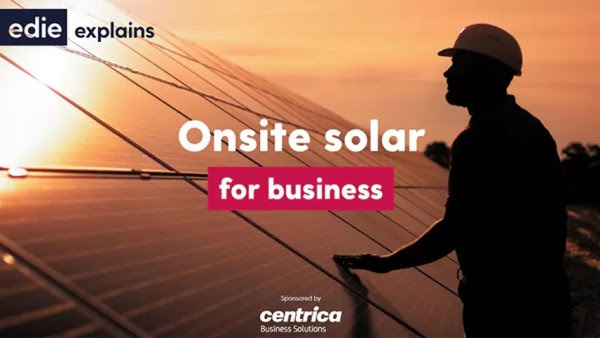
Find out how onsite solar can help your business reach decarbonisation targets and improve energy security in our latest edie explains on solar.
This new edie Explains guide, sponsored by Centrica Business Solutions, outlines all the key considerations, challenges and benefits to installing onsite solar for businesses and answers all of the below questions and more:
• What is onsite solar?
• How does it work?
• What type of business is onsite solar most suitable for?
• What are the business benefits of onsite solar?
• What are the costs of onsite solar?
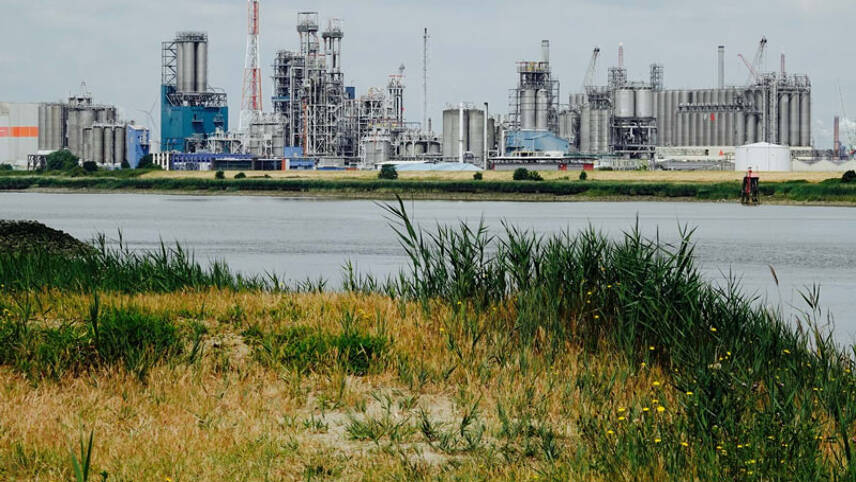
Belgium blocks mega plastics plant over lack of environmental data
Belgium’s Court of the Council of Permit Disputes made the ruling against the plant, which would be the biggest constructed in Europe in more than three decades, earlier this week.
The Court concluded that INEOS did not provide permitting authorities with enough information about the environmental impact of the ‘Project One’ plant, plus its value chain, across the full lifecycle. It also noted opposition from two local provinces in the Netherlands adjacent to the proposed site at the Port of Antwerp.
The two provinces, Nord Brabant and Zeeland, spearheaded one legal challenge against Project One. Another was progressed in tandem, by the environmental law firm ClientEarth.
ClientEarth won an injunction against INEOS in 2021 on the grounds that it was not publishing enough information about the social and environmental impact of Project One. This week, a judge ruled that there still was not enough information on topics including nitrogen pollution.
ClientEarth Lawyer Tatiana Lujan called the ruling “a watershed moment in the fight against unnecessary plastics”.
Lujan added: “It’s 2023. You cannot use oil and gas to make the components for plastic on an industrial scale and expect to sail through unchallenged.”

Report: Covid-19 and recession risks jeapordising delivery of UN SDGs
That is according to the UN’s latest annual report tracking progress towards each of the 17 Goals.
The top-line finding is that the annual additional cost of delivering the Goals in full, by 2030, is now $4.2trn. In 2019, the figure stood at $2.5trn.
Backwards progress on Goals relating to public health and good work in many economies, especially vulnerable developing nations, has contributed to this increased cost. The UN stated this month that global immunization rates are yet to rebound to pre-pandemic levels in regions including Africa and Latin America.
Delays have also made action more expensive in some fields, like building climate-resilient infrastructure and planning an orderly energy transition. Some of this is attributable to rising commodity costs amid global economic headwinds.
Goals with significant levels of stagnation and regression also include Goal 14, life below water; Goal 15, life on land. And no nation is on track to fully achieve SDG 13, which related to climate action. The climate and biodiversity crises are intrinsically linked, and there are also links connecting the broader SDG agenda.
